With all of the conversations surrounding mental health and mental illnesses being on the forefront, there are many people who are sharing their powerful advice about helping your friends and family who are struggling.
Many believe that if a friend asks for help, that is your cue to step up and be by their side to support them. But, there are some who believe that if a friend is in need, and you’re aware of this, you shouldn’t wait for them to ask for help. Sometimes, many who are suffering don’t feel as though they should ask for help–or, that they’re worthy of having you help and support them. Instead, sometimes, you should try and help them without being asked or requested.
One writer’s Twitter thread showcased the powerful meaning behind “stepping up” as a friend when someone you love is in need.
Sheila O’Malley was going through a hard time after her dad passed away. She was unable to unpack her new apartment because she was suffering and grieving for such a long period of time–as many of us do when we lose someone close to us.
Note: this article was originally published by our friends at Woke Sloth. Tweets are from Sheila O’Malley which you can follow here: @sheilakathleen
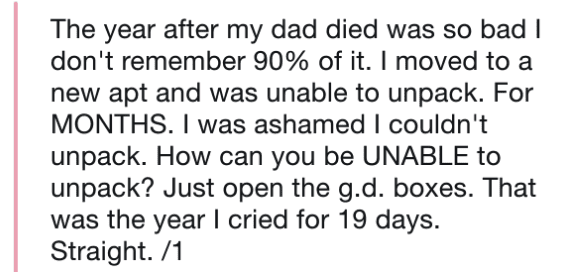
Her friend, David, decided to step up without Sheila asking and rallied his friends together.
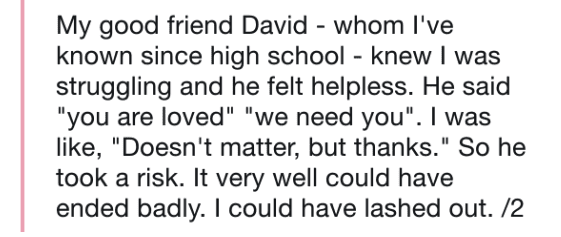
He took the risk to help out his struggling friend.
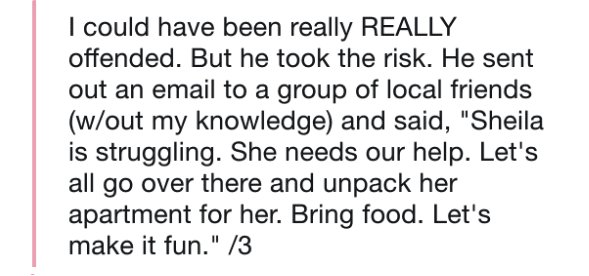

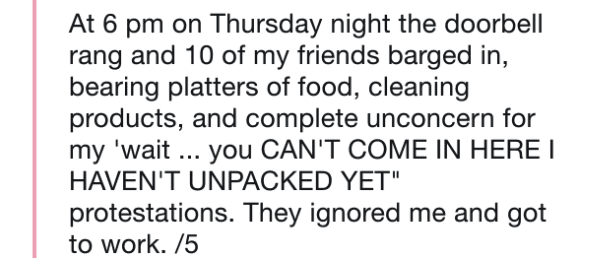
And they delivered.
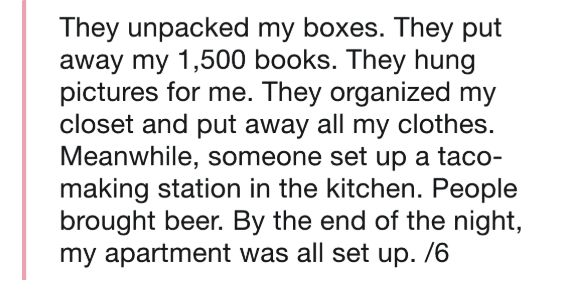
They also made sure to keep their judgments to themselves and be there solely to support their friend.

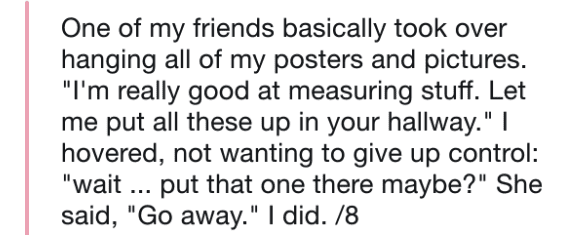


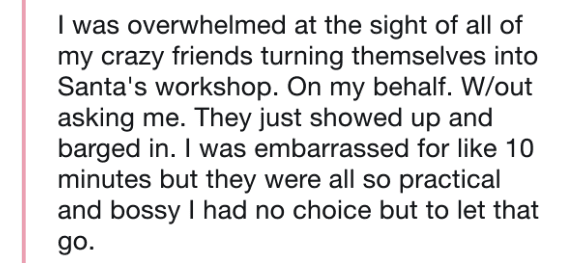
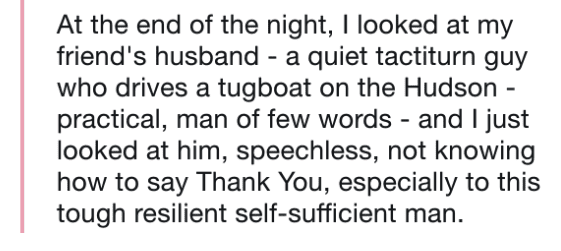

Sometimes, people don’t feel comfortable asking for help and when this happens, taking the risk to help them anyway can change their world.
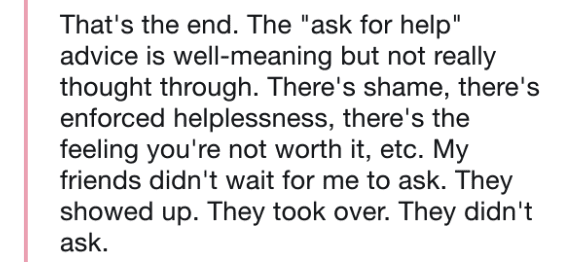
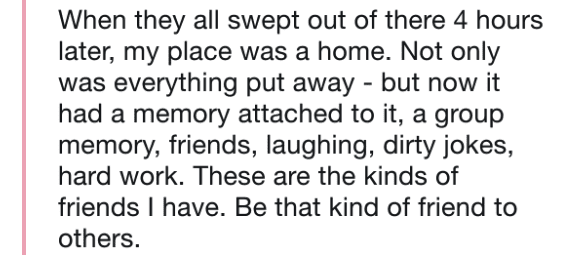



The post Powerful Twitter Thread Explains Why You Shouldn’t Always Wait for Your Friends to Ask for Help appeared first on UberFacts.





